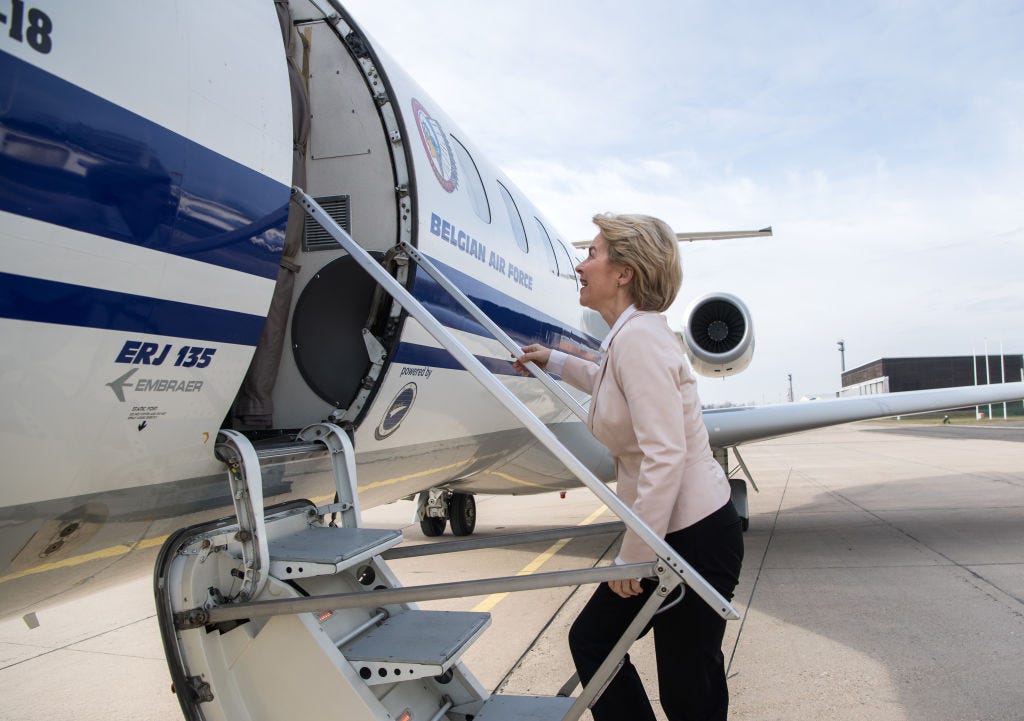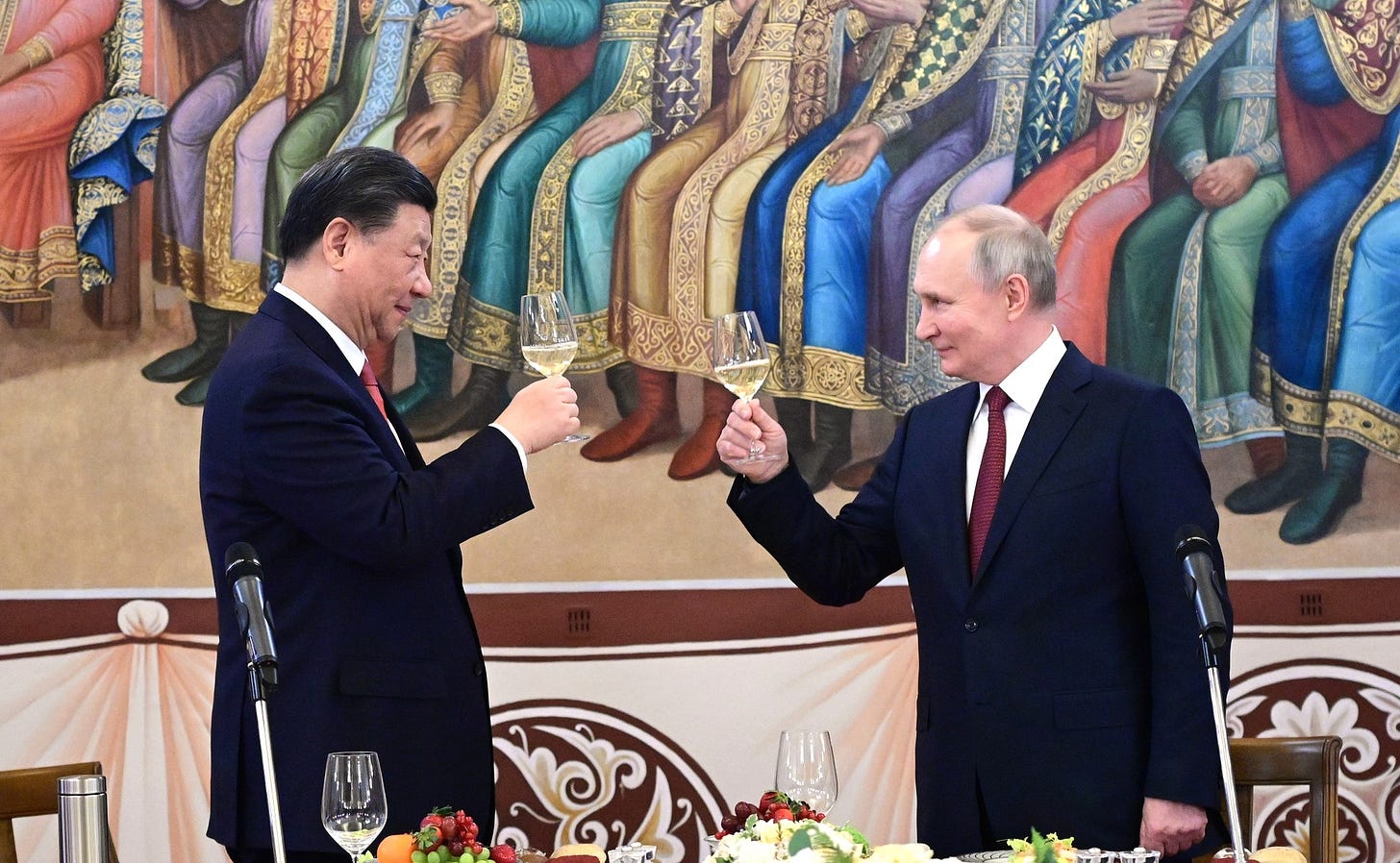Final Countdown
The end of the EU is near, and it’s going to get ugly.
“If approval was a criterion in this country, nothing would ever get done.” – Emmanuel Macron
On September 1, the Financial Times broke the ominous news that a plane carrying European Commission President Ursula von der Leyen was the target of a jamming operation meant to interfere with its Global Positioning System (GPS). Russia was immediately fingered for the job. According to the report, the plane was forced to circle over Plovdiv, Bulgaria, for over an hour before pilots resorted to the use of paper maps to safely land.
We would link to the story, but the original has since been edited and most of the key claims—repeated countless times and breathlessly by news outlets around the world—were patently untrue. The plane did not repeatedly circle Plovdiv, it landed only nine minutes later than scheduled, and the pilots did not use paper maps to navigate. Demands made by a Bulgarian member of the European Parliament that von der Leyen denounce the reporting as “fake news” have been ignored. The affair has since been largely memory-holed.
We assumed the story was suspect immediately upon reading it, if for no other reason than keeping von der Leyen in her current role has to be one of Moscow’s top strategic priorities. Who else is more qualified to destroy the European Union (EU) from within? Under her bold leadership, the EU has impaled itself on nearly all the foundational attributes that underpin economic and geopolitical power—most notably by accelerating deindustrialization and forging ahead with disastrous energy policy.
Kremlin leaders undoubtedly breathed a sigh of relief that von der Leyen was unharmed, especially when they read this passage from her 2025 State of the Union Speech just days after the episode:
“Already today, low-carbon sources account for over 70% of our electricity. We are global leaders in clean tech patents—better than the US, and racing with China. We are catching up with US venture capital for clean tech—and way ahead of China. We are firmly on track to achieve our 2030 target to cut emissions by at least 55%.
This is the power of the European Green Deal. And we must stay the course on our climate and environmental goals.
The science is crystal clear. And the economic and security case is equally compelling. In fact, this transformation is central to our push for independence. Because it reduces our energy dependency. Because circular production limits our strategic dependencies. And because it creates frontrunner industries that can export the solutions to others.”
A constant refrain in these pages is that cheap and abundant energy is the bedrock of modern prosperity, and societies made poorer by fumbling elites tend to rebel. On the path from abundance to starvation comes riot—first political, and then, if necessary, physical. On the energy front, von der Leyen’s tone-deafness is becoming as significant an issue as the underlying physics itself, as blindly staying the course on suicidal economic policies in the face of overwhelming evidence of their folly only further enrages the mob.
Whatever one’s views on the war in Ukraine, it is undeniable that the EU has suffered greatly from the loss of cheap, abundant Russian energy and the economic crisis that followed. To keep a lid on political unrest, the EU’s leadership has suppressed political rebellion across the continent, using all manner of dirty tricks to subvert demands for change expressed at the ballot box.
How long can this go on? With most of Europe mired in economic malaise and political turmoil, a tipping point may soon be reached in Brussels. In country after country, EU efforts have proven increasingly ineffective under a growing sense that revolutionary change is imminent. Let’s tour the Old Continent, highlight the hot spots, and ponder the odds that sweeping political change will unravel the current regime.



